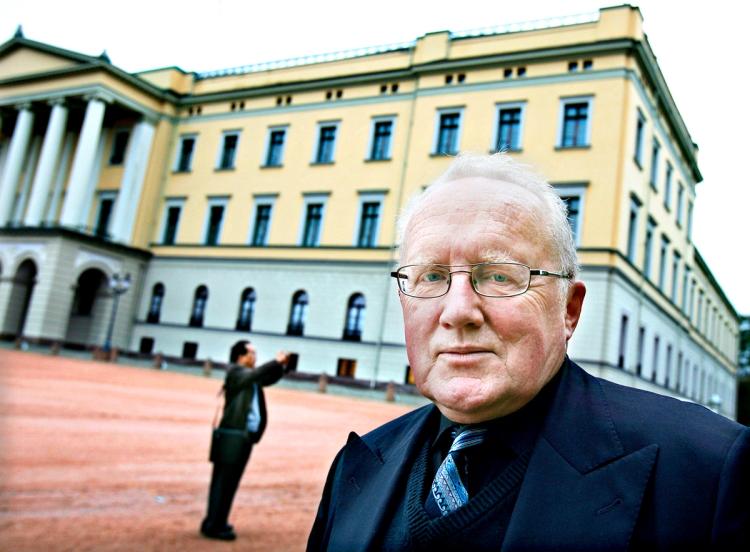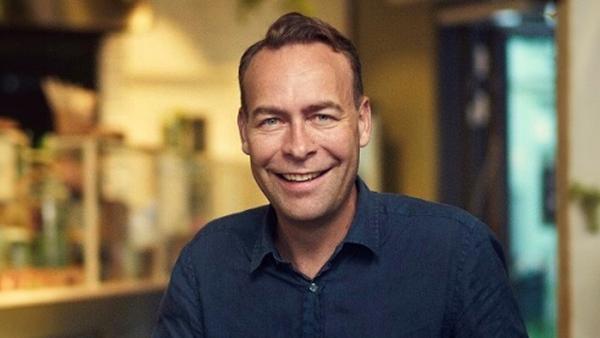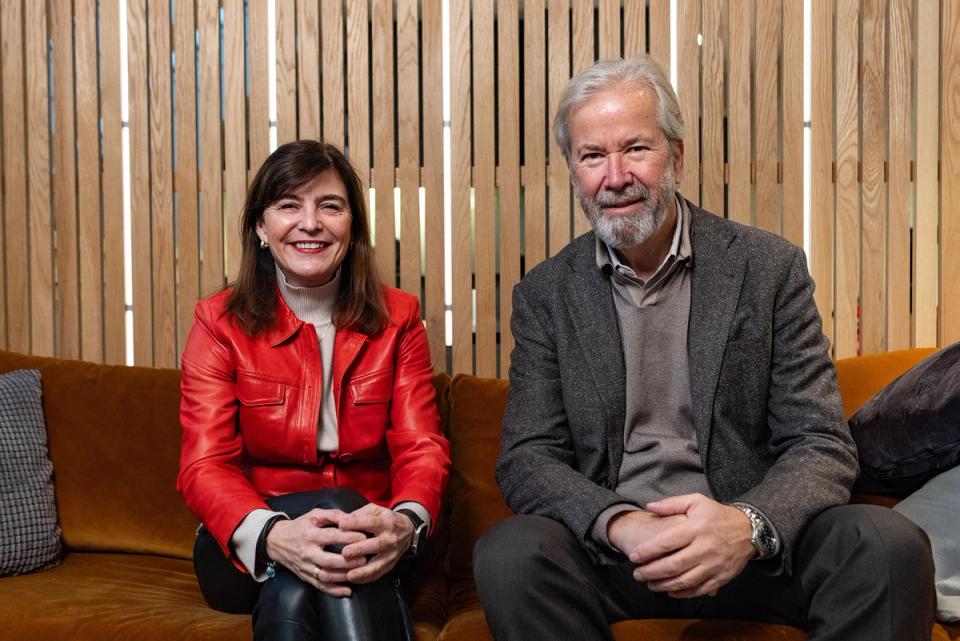30. oktober 2023
In Memory of Per Egil Hegge

Per Egil Hegge, a long-standing board member of the Tinius Trust, has passed away. He is remembered as an exceptional journalist and editor.
This obituary was first published in Aftenposten on October 12, 2023, and is translated and reproduced in agreement with the author.
By HARALD STANGHELLE
Per Egil Hegge uniquely holds the distinction of winning Norway's most prestigious journalism award on two separate occasions, separated by an extraordinary interval of fifty years. He was among the country's most influential journalists throughout the extensive period Hegge could call his own.
With the passing of Per Egil Hegge, an era in the history of Aftenposten has ended.
For decades, he was the unassuming champion who shone across the diverse field of journalism, always with razor-sharp observational skills and an intense commitment. He didn't just play in journalism's premier league; Per Egil Hegge was in a league of his own.
He probably knew it himself. And so did we.
Multiple 'Hegges'
In a portrait interview that Per Egil Hegge – a format he also mastered – conducted with Aftenposten's then-powerful owner, Tinius Nagell-Erichsen, the owner expressed dissatisfaction with the quality of modern journalism:
'We need newsrooms full of Hegges,' he exclaimed.
'Goodness me. You know well I can't write that,' the singular Hegge retorted.
'That's right, you can't. Isn't it me being interviewed?'
And in Aftenposten's Saturday edition, the owner's demand for more Hegges appeared in print. Signed by Per Egil Hegge.
He probably agreed. For even a Hegge could maintain a robust self-image. Most often, he had good reasons for it.
Talented in Most Areas
Per Egil Hegge was a witty individual from Inderøy, gifted in numerous areas.
He inherited a love for language and social awareness from his home. His father was a teacher, and his mother authored children's books. In his later years, Per Egil wrote in his column for Dag og Tid that at eight, he served as the expert consultant for his mother Mary's debut book, 'Beritungen'.
He had an exceptional ear for language, mastering several languages, some with remarkable proficiency.
However, Per Egil Hegge was one of those rare individuals who could excel and venture into almost any field. This was exemplified when he received a Chinese cooking course for his birthday and swiftly became an adept practitioner of Chinese culinary arts.
At the National Press Club in Washington, Per Egil Hegge's name is etched on a large silver trophy, commemorating a chess tournament where the Norwegian surpassed all his rivals. Per Egil also recalled playing chess with Edward Teller – the Hungarian-American physicist known for his role in developing the first atomic bomb through the Manhattan Project in Los Alamos, New Mexico.
Unbeatable Record
Per Egil Hegge possessed a phenomenal memory and was enormously knowledgeable. If there were something he wished to know but didn't, he would diligently research it until he mastered most of it.
'Did you see his books?' I once overheard a member of an American journalist delegation exclaim. They were waiting for the elevator on the 5th floor in Aftenposten's old building at Akersgata 51. The Americans had visited Hegge's office and were astounded by the multitude of books in a dozen languages – and newspapers in almost as many.
When Per Egil Hegge received the Great Journalism Award at the age of 78, it was not only for his distinguished career but also for being a linguistic role model and a tireless, correcting pedagogue for newspaper language.
He tirelessly worked to refine Aftenposten's language internally throughout his career. In moments of frustration, he would occasionally admit that his success was only partial. He contributed to his newspaper for the last 14 years, enchanting readers with a daily language column.
In total, there were 5,114 such language columns—an unbeatable record.
Before this, he was naturally awarded the Golden Pen for his assured, effective, and often elegant use of the Norwegian language.
Best – and Expelled
Per Egil Hegge spent the longest stint of his journalistic career as a foreign journalist and correspondent in London, Washington, and Moscow.
In Moscow, the Russian-fluent Norwegian developed contacts with the era's dissidents, a risky endeavor that enraged the Soviet authorities.
Through these efforts, Per Egil Hegge, alongside a few other Western correspondents and intellectuals, opened a window to a more accessible world for those surveilled and persecuted in their own country. One such individual was Literature Nobel laureate Aleksandr Solzhenitsyn. The relationship with the Russian literary icon became so close that much of Solzhenitsyn's correspondence with the Swedish Academy was facilitated through Hegge. Hegge recounted this experience in his book, 'Middleman in Moscow'.
In hindsight, the significance of these actions is unmistakably clear.
However, Per Egil Hegge paid a steep price for his forthright journalism and connections with dissidents. In March 1971, he was expelled from the Soviet Union.
This expulsion caused an uproar in the Western world, and The Washington Post, a major American newspaper, gave the expelled Norwegian high praise:
'Per Egil Hegge was the best in Moscow.'
Insistent Debater
Per Egil Hegge was not only a reporter but also a sharp debater. His opponents often described him as brutal and persistent, and it's easy to understand why.
When Per Egil chose his battles, he pursued them relentlessly.
He exposed and criticized Johan Galtung, a peace researcher whom Hegge believed was parading in many unearned accolades. His confrontation with the Marxist-Leninist movement became legendary, serving as political entertainment over several decades. Moreover, he ignited one of the 1980s' most significant cultural debates when he harshly critiqued Knut Faldbakken's novel 'The Honeymoon':
'...the most disgusting and repulsive piece of fiction I can remember reading.'
This was Per Egil Hegge at his most uncompromising. He could push boundaries in such moments, and few approached Per Egil Hegge without trepidation.
The Great Love
Per Egil Hegge's most notable battle was against the medical authority and experts who only listened to themselves. This fight had a deeply personal story behind it.
Per Egil Hegge's great love was the Danish Birgit Wedege. He met the Danish kindergarten teacher at a meeting in the Studentersamfunnet at Dovrehallen in Storgata. The man from North Trøndelag fell deeply in love, but Birgit returned to her home country.
After much persuasion, Birgit came back to Norway. Decades later, Per Egil would tenderly show an exceptionally worn piece of folded paper he always kept in his wallet:
The receipt from the Telegraph Office for the national phone call ended with Birgit agreeing to return to Norway as Per Egil's wife.
Their union seemed to be without regret. They complemented each other, and Birgit remained the most crucial reference in Per Egil's life.
The Fight Against Illness
But then Birgit fell ill. The doctors initially trivialized her condition while Per Egil 'was about to become a widower', in his own words. Birgit nearly died from hypothyroidism due to the gross incompetence of Norwegian doctors. Per Egil methodically researched international medical literature, diagnosed the ailment, and found a treatment for what was then considered a 'women's disease' that doctors did not take seriously.
He likely saved Birgit's health and found a new cause to champion.
Through commentaries, lectures, and books, he fought for the recognition of hypothyroidism. He criticized the doctors who disagreed with him but received many letters from grateful women who finally received the help they needed.
The Sovereign
Per Egil Hegge called one of his books 'The Sovereigns', a thorough critique of the medical profession and other experts. It perhaps never occurred to him that the title suited him perfectly.
For Per Egil Hegge was indeed sovereign.
At Aftenposten, he served as a foreign correspondent, cultural editor, commentator, and editor of A-magasinet. He authored numerous books, including a significant authorized biography of King Harald.
Per Egil Hegge was among the few journalists knighted by the Order of St. Olav.
In 1968, at the age of 28, Per Egil Hegge received the Narvesen Prize – the most prestigious journalism award of that era – for his coverage of the Soviet invasion of Czechoslovakia. On a journalistic assignment at the time, Hegge became an eyewitness to the country's subjugation by the communist war machine.
About Dying in Peace
Exactly 50 years later, on August 21, 2018, Per Egil Hegge and I found ourselves together in Prague. On a beautiful late summer day, we strolled around this magnificent city amidst the bustle and cheer of its people.
We walked past the spot where young Jan Palach had set himself on fire in a desperate protest against the authoritarian assault on his homeland. Some flowers were laid there in remembrance, but otherwise, life continued its usual pace.
Per Egil reflected on the profound changes from the past, a time marked by restrained expressions and a pervasive, nameless fear under communist rule. He had witnessed much of this and deeply understood its impact on individuals.
Thus, the transformation was unmistakably clear to him. He had observed it more keenly than most. On this day of remembrance, the veteran journalist felt this deeply. Per Egil would probably never have chosen 'happiness' to describe his feelings. He believed happiness wasn't really meant for him.
Yet, both his voice and lips trembled with passion as he declared:
'I saw what it was back then. And I see what it has become. We smell the scent of freedom. It does me so much good. Now, I can die in peace.'



